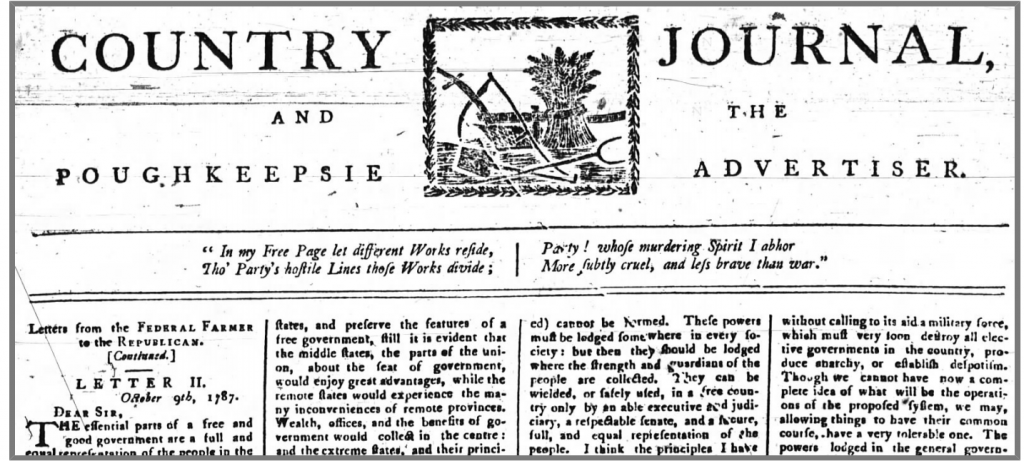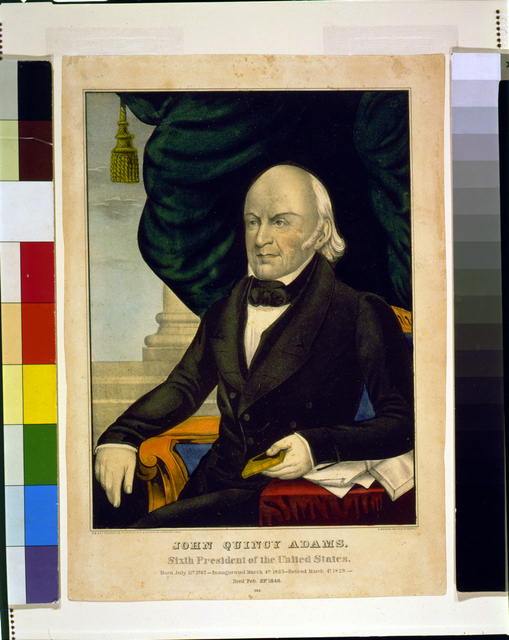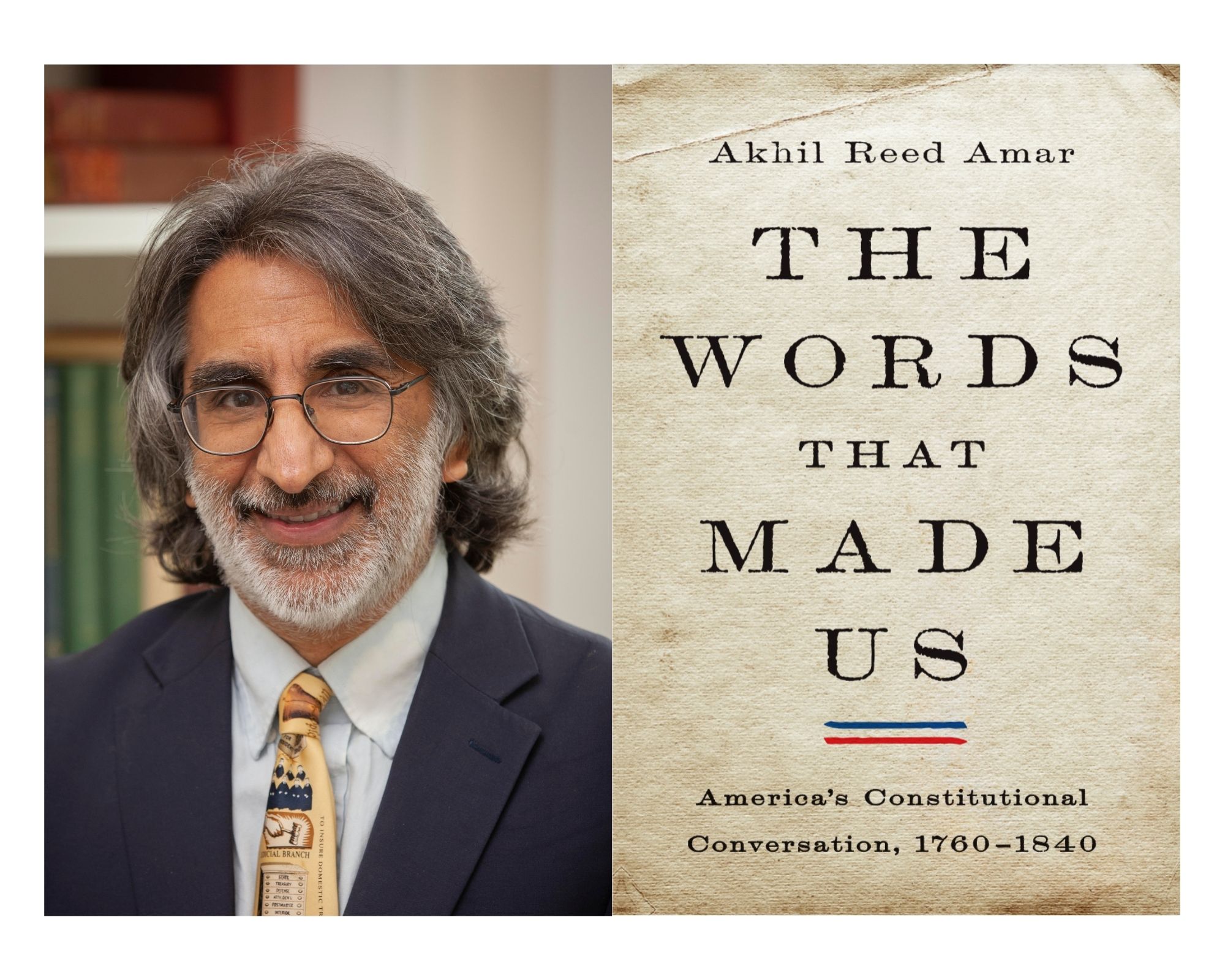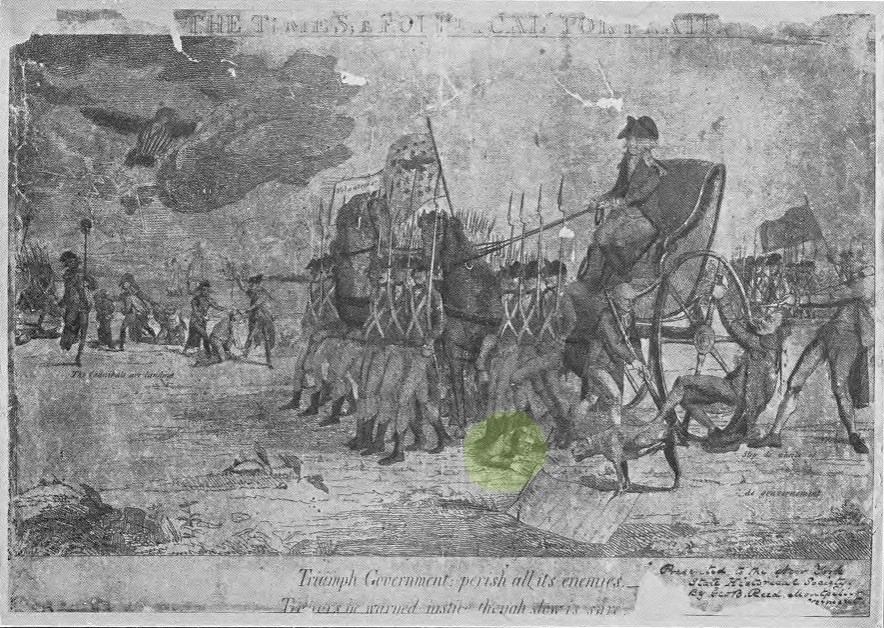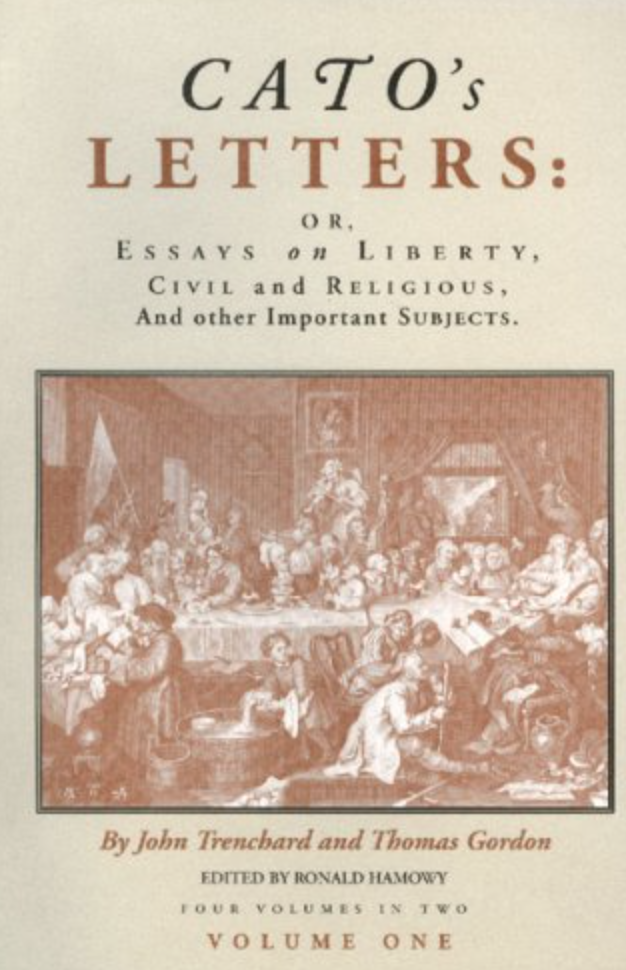Letters from the Federal Farmer was a series of 18 articles published in the Poughkeepsie Country Journal in late 1787 and early 1788. The articles provided a broad articulation of the Anti-Federalist criticism of the proposed Constitution. In Number 16, the Federal Farmer addressed freedom of the press. The Federalists argued that a bill of rights was not needed, in part, because state constitutions protected rights like freedom of the press. But Federal Farmer argued that state enactments would not protect the press against national laws. Congress, he said, had the power to tax, which could be aimed at the press. He said, “Printing, like all other business, must cease when taxed beyond its profits; and it appears to me, that a power to tax the press at discretion, is a power to destroy or restrain the freedom of it.” For Federal Farmer, the benefits of a free press required its explicit protection in the Constitution. “Newspapers may sometimes be the vehicles of abuse, and of many things not true; but these are but small inconveniences, in my mind, among many advantages.”
By Professor Stephen D. Solomon, Editor, First Amendment Watch
Federal Farmer, Number 16, 20 January 1788
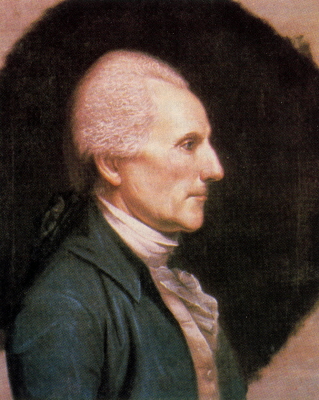
Richard Henry Lee, one of the proposed authors of Federal Farmer, though exact authorship unknown
“All parties apparently agree, that the freedom of the press is a fundamental right, and ought not to be restrained by any taxes, duties, or in any manner whatever. Why should not the people, in adopting a federal constitution, declare this, even if there are only doubts about it. But, say the advocates, all powers not given are reserved:—true; but the great question is, are not powers given, in the exercise of which this right may be destroyed? The people’s or the printers claim to a free press, is founded on the fundamental laws, that is, compacts, and state constitutions, made by the people. The people, who can annihilate or alter those constitutions, can annihilate or limit this right. This may be done by giving general powers, as well as by using particular words. No right claimed under a state constitution, will avail against a law of the union, made in pursuance of the federal constitution: therefore the question is, what laws will congress have a right to make by the constitution of the union, and particularly touching the press? By art. 1. sect. 8. congress will have power to lay and collect taxes, duties, imposts and excise. By this congress will clearly have power to lay and collect all kind of taxes whatever–taxes on houses, lands, polls, industry, merchandize, &c.–taxes on deeds, bonds, and all written instruments–on writs, pleas, and all judicial proceedings, on licences, naval officers papers, &c. on newspapers, advertisements, &c. and to require bonds of the naval officers, clerks, printers, &c. to account for the taxes that may become due on papers that go through their hands. Printing, like all other business, must cease when taxed beyond its profits; and it appears to me, that a power to tax the press at discretion, is a power to destroy or restrain the freedom of it. There may be other powers given, in the exercise of which this freedom may be effected; and certainly it is of too much importance to be left thus liable to be taxed, and constantly to constructions and inferences. A free press is the channel of communication as to mercantile and public affairs; by means of it the people in large countries ascertain each others sentiments; are enabled to unite, and become formidable to those rulers who adopt improper measures. Newspapers may sometimes be the vehicles of abuse, and of many things not true; but these are but small inconveniences, in my mind, among many advantages. A celebrated writer, I have several times quoted, speaking in high terms of the English liberties, says, “lastly the key stone was put to the arch, by the final establishment of the freedom of the press.”
Source: Storing, Herbert J., ed. The Complete Anti-Federalist, Vol. 2, Section 8.203,. (Chicago: University of Chicago Press), 1981
Tags
